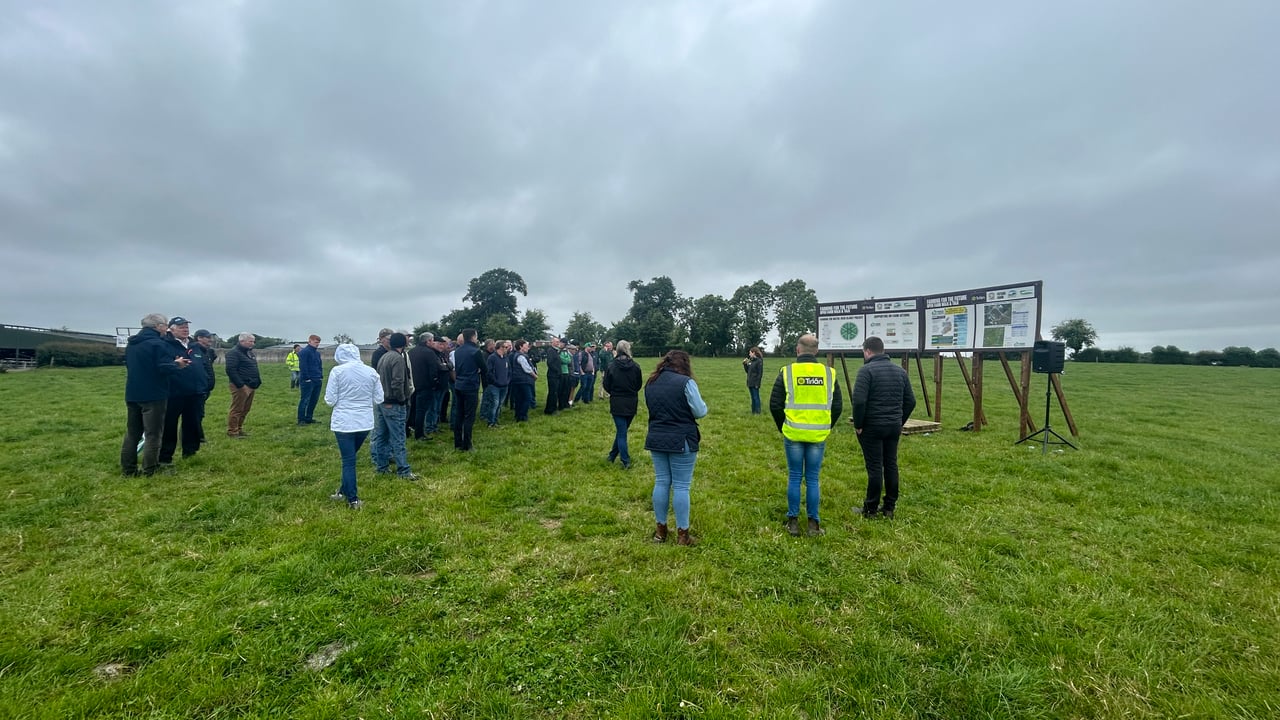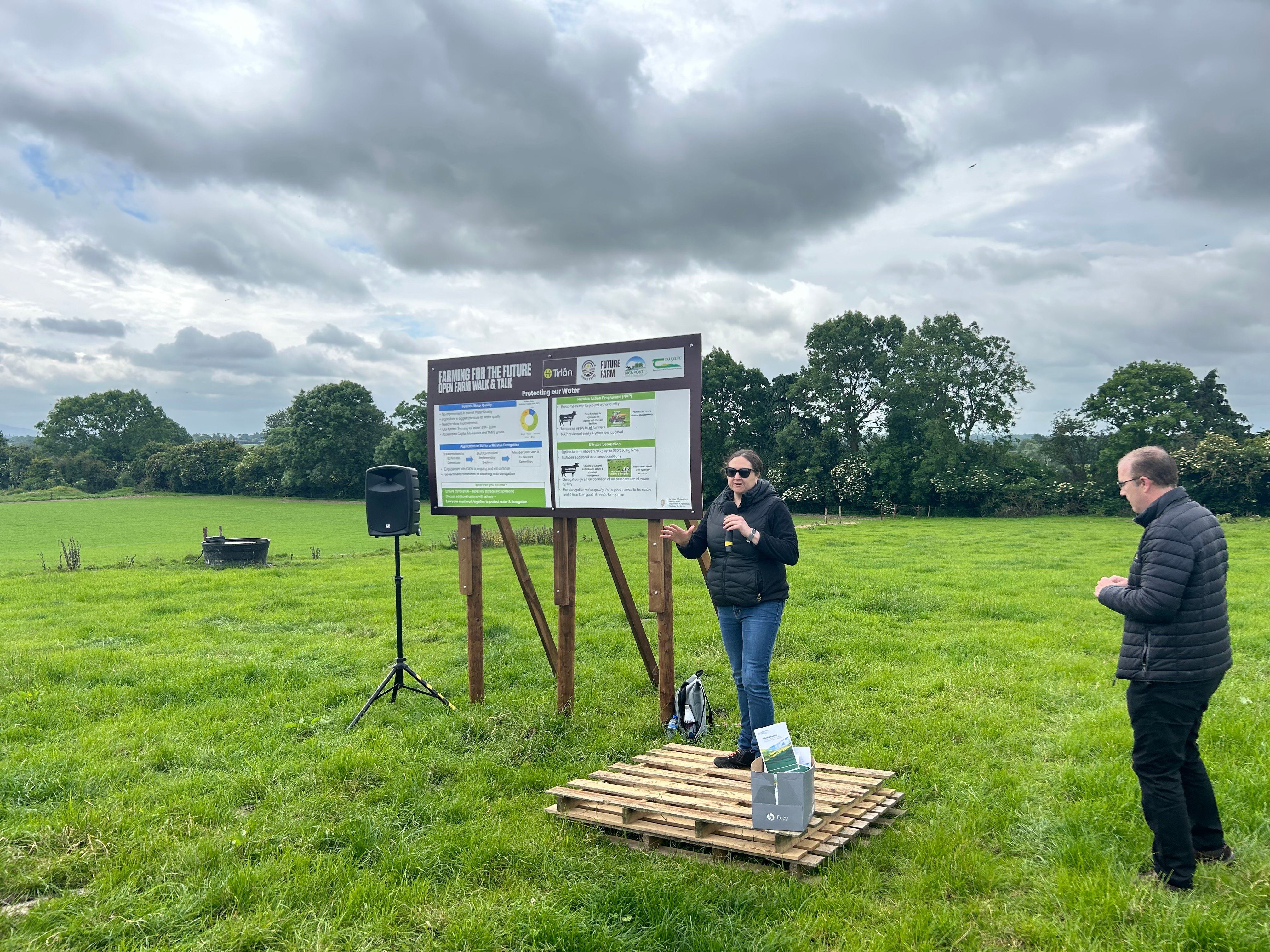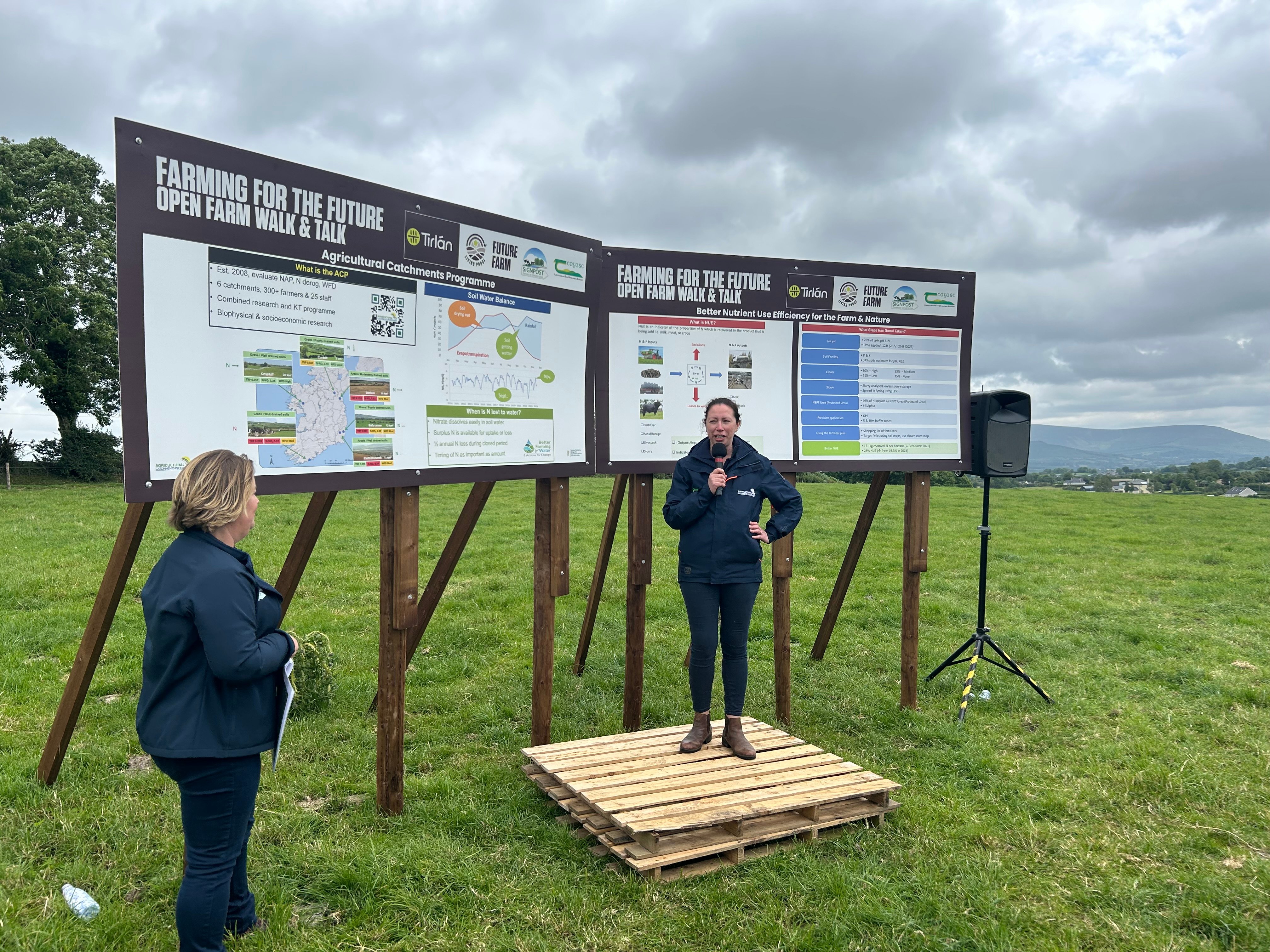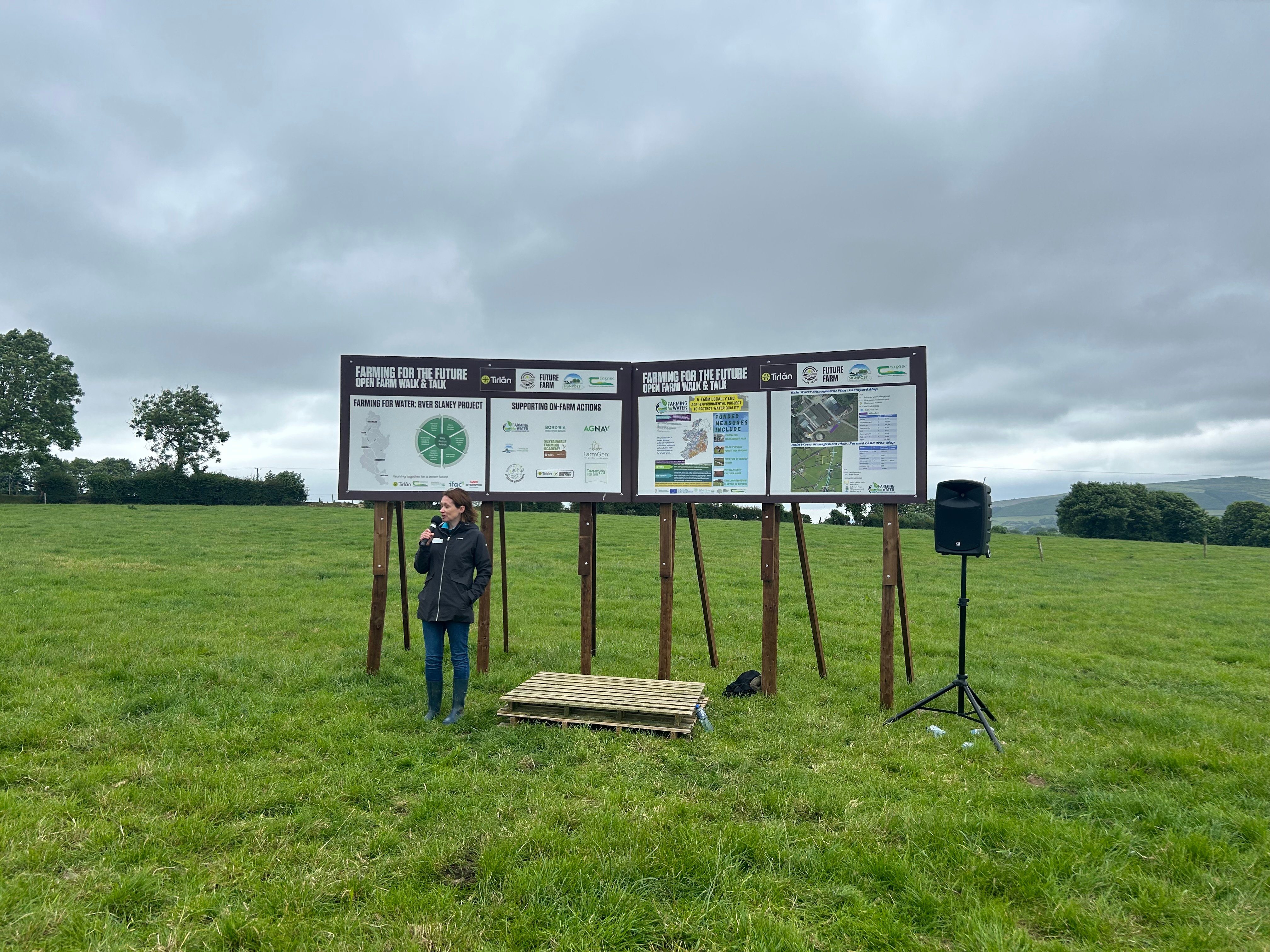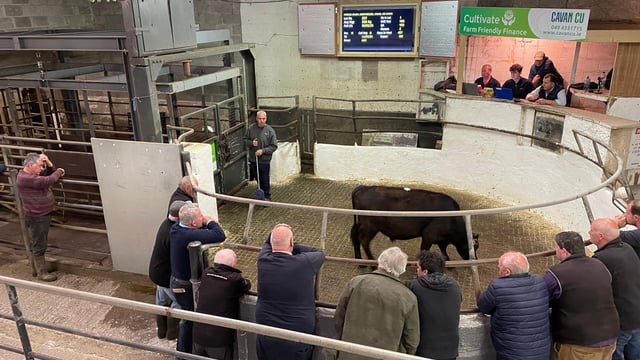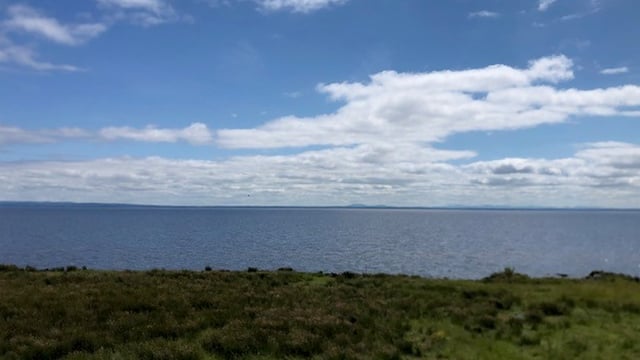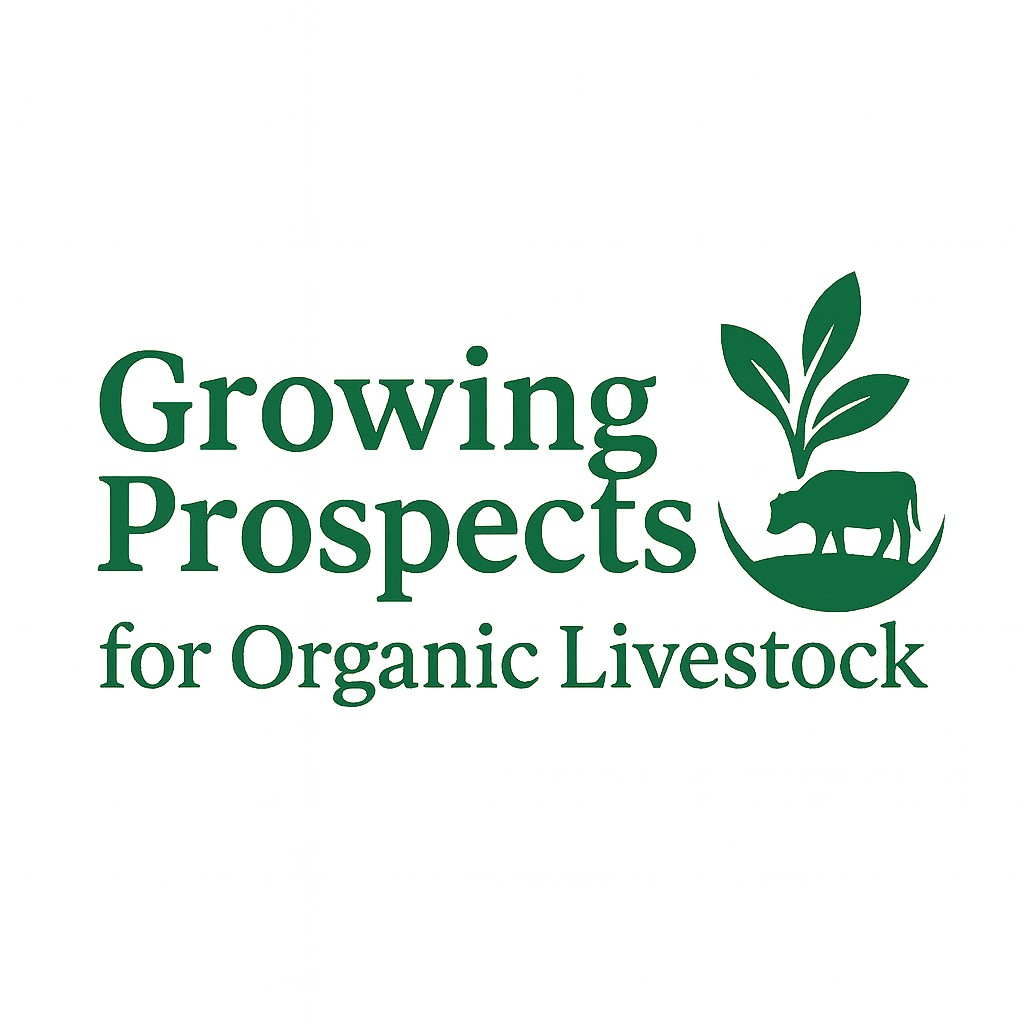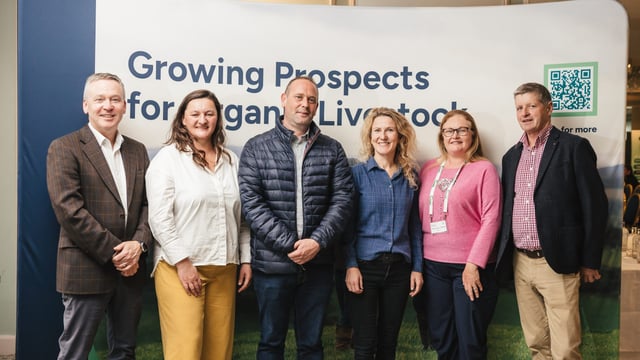What can farmers do to secure the next derogation?
The 'Farming for the Future' open farm walk and talk event which took place on Donal Kavanagh's farm in Baltinglass, Co. Wicklow, highlighted the measures that can be taken on farm level to maintain the derogation and improve water quality.
The understanding is that agriculture is undergoing a significant period of change and during the farm walk, Tirlán believe the stand out policy issue is the protection of water quality and the future of the nitrates derogation.
The CEO of Tirlán, Jim Bergin spoke after and admitted that in the last 18 months, he has never seen a topic to grip farmers as much as the Nitrates.
He talked about the challenge of the River Slaney project, which is the project they are undertaking to improve the areas and water quality surrounding the river.
It is one of the most challenged rivers in the country with the most diverse enterprises on it, but Jim Bergin believes that the scale of this project is so big and demanding that it is a great way to start.
"In terms of a match, if you know who the best players on the opposite team are, and you try and subdue them, you're off to a good start."
He finished up by further stressing the importance of proving we can farm at the level that we are at, to strengthen our hand when we go to Europe.
The chair of Tirlán, John Murphy emphasised that Tirlán is "absolutely committed to improving our waterways because its the right thing to do".
"Through good work and improvements happening on farm, we will see its affects in a few years," he added.
Noeleen McDonald who is an assistant agricultural inspector for the Department of Agriculture, Food and the Marine (DAFM), talked us through the policy landscape around water quality and and the nitrates derogation.
What can farmers do to secure the next derogation? Ensuring compliance is number one, especially around storage and spreading. McDonald also said to:
"Understand your soil type, the pressures in your area and where you are flowing into catchments."
The Nitrates Action Programme (NAP) was discussed and is the basic measures to protect water quality from spreading dates to storage with these measures applying to all farmers and is then reviewed every four years.
In terms of the nitrates derogation, water quality needs to be stable and if less than good, it needs to improve as derogation is given on on condition of no deterioration of water quality.
McDonald highlighted that in terms of water quality, Ireland has not improved as over 45% of the surface water ecological status from 2016-2021 was of a moderate to bad status.
The 60 million government funded 'Farming for water' European Innovation Partenership Scheme (EIP) and the accelerated capital allowances and TAMS grants is all in place to protect our water.
Bridget Lynch who is a Teagasc researcher at Johnstown Castle talked us through the Agriculture Catchments Programme (ACP).
The programme involves six catchments with 300 plus farmers and 25 staff which evaluates NAP, nitrates derogation, an d the water framework directive (WFD).
The catchments are small (about 1000ha) which allows them "to closely monitor losses of nutrients, water quality, phosphorus and nitrate losses", according to Bridget Lynch.
The programme asses the biophysical elements such as soil science as well as hydrochemistry hydrology and the socioeconomic aspect of it as well.
In 2023, there was reduction in nitrates in five of the catchments compared to 2022 which shows that there are improvements being achieved from the programme.
The programme takes into account the annual soil water balance to have an understanding of when nitrogen (N) is lost to water, so that slurry and fertiliser application is spread at an optimal time of the year.
This takes us onto nitrogen use efficiency (NUE) which is an indicator of the proportion of N which is recovered in the product that is being sold (e.g. milk, meat, crops).
Sandra Hayes, the coordinator of the Teagasc future farmers, spoke about the 11 farmers across the country including Donal who are apart of the programme. She said that:
"NUE is what I would call the new key performance indicator (KPI), as you're very familiar with grass grown and utilised, milk per hectare, milk solids/cow but NUE is a new one that you are going to have to become familiar with."
The target NUE for the programme is 35% and there is range of steps you can take to try and achieve this target.
The host farmer, Donal has a NUE of 26% and you can see the steps he has taken to achieve this below.
| Soil pH | 70% of soils of a pH over 6.2 Lime applied: 124t in 2022 and 266t in 2023 |
| Soil fertility | 34% of soils optimum for pH, P and K |
| Clover | 65% of the farm incorporated |
| Slurry | Slurry tested with excess storage Spread in spring using LESS |
| Protected urea | 66% of N applied as protected urea + sulphur |
| Precision application | GPS Five and 10 metre buffer zones on farm |
| Using the fertiliser plan | Shopping list of of fertilisers Target fields using soil and clover score maps |
| Better NUE | 171kg chemical N/ha (down 33% since 2021) 26% NUE (up from 19.3% in 2021) |
Mathew Moylan of Tirlán spoke about the initiative and programmes that Tirlán have in place to improve water quality, increase biodiversity, improve sustainability and so on.
Some of the initiatives include the Sustainable Farming Academy, FarmGen, Operation Biodiversity, the Sustatinable Action Payment and the Twenty20 beef club.
Mairead Shore from the Local Authority Water Programme (LAWPRO), has recently joined the new farming for water EIP team which is being managed by LAWPRO in conjunction with Teagasc and Dairy Industry Ireland.
The 60m project's goal in the five years is to engage with up to 15,000 farmers nationwide in target areas for water quality measures and where they're needed most. Shore told us that:
"Unfortunately we can't fund every farmer in the country and it's probably not needed on every farm in the country, so, we do have a prioritisation approach to this meaning we're starting with the worst affected areas."
The funded measures a part of the programme include:
- A rainwater management plan;
- Solar powered pumps and troughs;
- Creation of bunded drains;
- Installation of earthen bunds;
- Tree and hedgerow planting in buffers.

